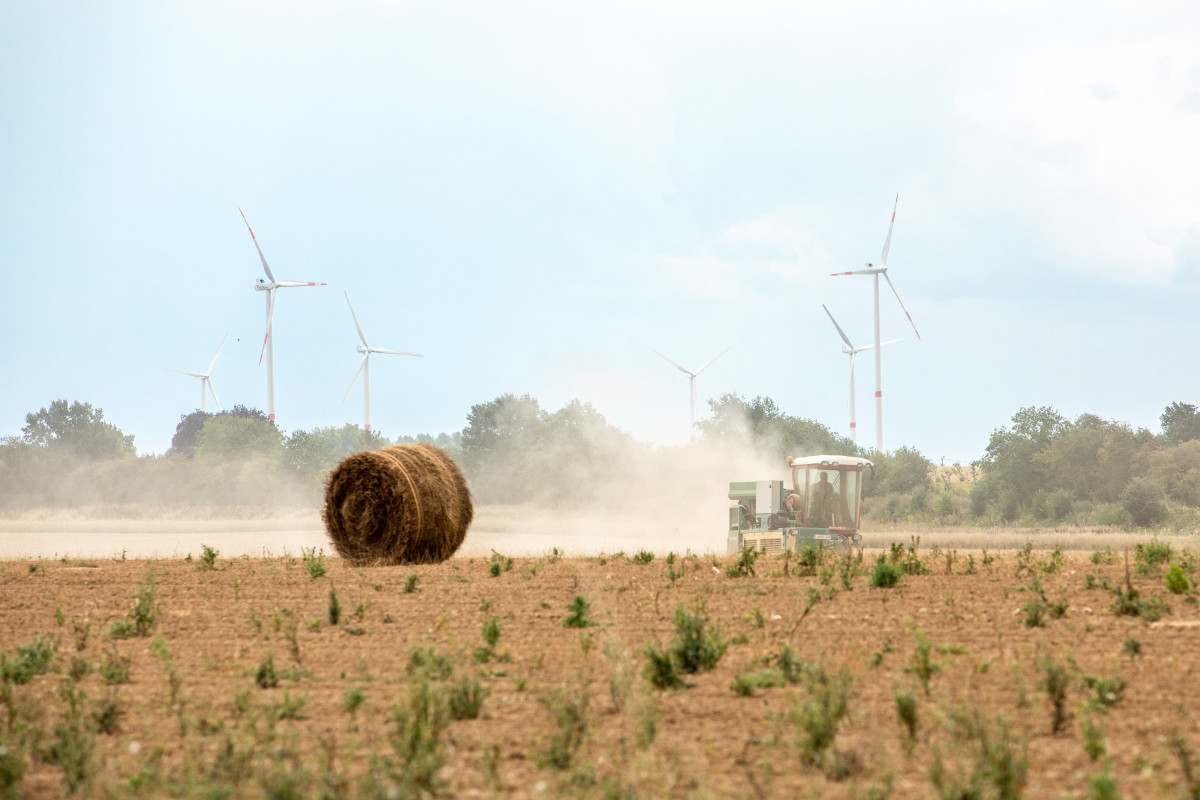EU elections will not trigger Green Deal rollback, but future ambition at stake – researcher
[Also sign up for CLEW's Press Club: what’s next for energy & climate in Europe?, taking place on the day after the elections, 10 June. CLEW alongside journalists from France, Poland and the union's unofficial capital Brussels will analyse the role of climate in the vote and what it means for Europe's Green Deal future. Everyone is invited to this one-hour press club event.]
***Please note: This interview is part of a dossier on the impact of rising populism on climate efforts in Europe.***
Clean Energy Wire: When you think about the outcome of the EU elections, are you worried about the future of European climate policy?
Philipp Jäger: I am worried. We do see that the enthusiasm for climate action which we had five years ago is not there anymore. This is going to be reflected in the composition of the new European Parliament. In the medium and long term, support for green topics in parliament and in society is crucial. If that support evaporates or weakens, then I am sceptical that we are going to reach the climate objectives.
Where is the European Union at with the Green Deal? Can Europe still change course?
It is possible, but very unlikely. Could Europe change course, and could this change in direction be triggered by an election? Yes, I think that is what happened five years ago. The public demanded more climate action, and then the Parliament, the Commission and the Council delivered on that. If the population was to say 'we don't want climate action anymore' and voted accordingly, then this would eventually change the course. Elections do matter.
However, there is not a strong backlash in the population against climate policy, so this election is not going to trigger a complete change of where the EU is headed on green legislation. Still, because there is less enthusiasm on climate protection, we are set for a somewhat less ambitious trajectory.
A rollback of the Green Deal is not a realistic scenario?
I do not think that there is going to be a big rollback of already adopted legislation. The Fit for 55 package was adopted in the EU cycle that is now coming to an end, and it contains a lot of important files. The ETS was strengthened, the carbon border adjustment mechanism [CBAM] was introduced, and so was the Social Climate Fund. The parties that are likely to form the majority after the elections said that they do not want to undo these.
Recording available: CLEW Press Club - What’s next for energy & climate in Europe?
I am a bit more worried about the necessary climate legislation going forward, about a negative impact on the ambition in the future. What has been adopted is a good starting point to get the Green Deal done, but it does not suffice. We still need quite a bit of facilitating action, including legislation, to reach the climate targets. The Green Deal needs continuous support.
Some of the legislation that was decided includes review clauses in the coming years, under which the EU will decide how to go forward.
Yes, exactly. The most prominent example for the revision clauses is probably the ban on new combustion engine cars from 2035. There will be a review in 2026, and if there is a political shift in parliament now towards a more sceptical view of climate action, then the revision clauses could lead to decisions that are harmful to the climate.
There is also the possibility to change already adopted legislation with a so-called omnibus law. The main objective of an omnibus law will likely be to cut red tape and reduce administrative burden, but under this guise, it might be used to effectively lower climate ambition. However, it is quite unclear what is going to happen.
Parliament matters greatly, but nothing happens against the will of the capitals.
How important could a shift to the right in parliament be?
We will have to wait for the results of the elections, but with more far-right parliamentarians, the behaviour of the centre will be key. Majorities could shift back and forth depending on the topic, and on certain files, more seats for climate sceptic members could actually make a difference. We already saw this with the EU nature restoration law in the outgoing parliament, where lawmakers worried about a narrow margin before the vote.
How much influence does the EU election actually have, given that member state governments have a big say in the union's policymaking and legislative processes?
Indeed, politics at member state level are crucial for EU legislation, and the influence individual member states have on what happens in the EU is still quite large. This is especially evident in policy areas where unanimity is needed in the Council. While most Green Deal legislation is decided by majority, some files – such as the Energy Taxation Directive – need unanimity. On top of that, individual countries sometimes take the legislative process hostage by blocking unrelated decisions where unanimity is required to get concessions on other files. So, in a nutshell, Parliament matters greatly, but nothing happens against the will of the capitals.
This will become evident for the Green Deal in the coming years, as the focus moves to implementation, which will require substantial amounts of public money. If this is money spent by the EU, then the member states are in the driving seat to make decisions, such as increasing the EU budget.
In addition, a number of EU rules must be implemented at the national level, and there is often quite a bit of flexibility on how member states do that. If a country is more climate action sceptic, it can use that wiggle room to be less strict and less rigorous.
In the end, however, a lot of the energy transition is about economics. Solar and wind energy are becoming cheaper, which greatly influences the transition. The economics work in favour of the necessary changes, which means less new regulation is needed and parties across the political spectrum will tend to be more in favour.
What about Green Deal implementation at the regional and local levels, if far-right populists opposing ambitious climate action get into government?
The local level is very important, and climate sceptic and populist parties at the local level can hamper the rollout of needed climate implementation quite lot.
The more you go from legislation to implementation, the more the local level becomes relevant. A lot needs to happen at local level, such as the rollout of the renovation wave, building the charging infrastructure and expanding the electricity distribution grid.
It depends on the country how much leeway the municipal level gets in implementation. There are federal countries like Germany that give quite a lot of autonomy to their regions, and then there are more centralised countries like France, where the leeway is much more limited.



